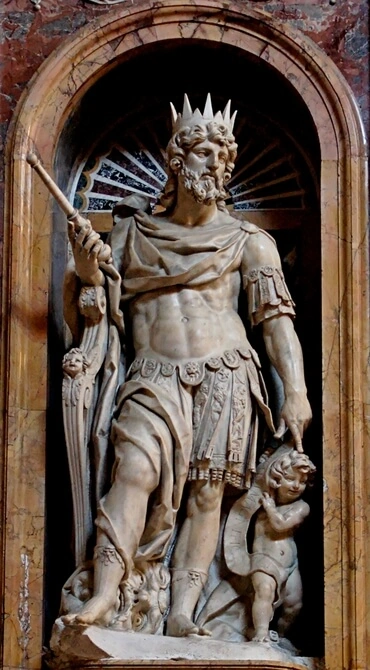1
Quando Isbosete, filho de Saul, soube que Abner morrera em Hebrom, esvaíram-se-lhe as forças, e todo o Israel ficou perturbado.
2
Tinha Isbosete, filho de Saul, dois homens chefes de guerrilheiros; um deles se chamava Baaná, e o outro Recabe, filhos de Rimom, o beerotita, dos filhos de Benjamim (porque também Beerote era contado de Benjamim,
3
tendo os beerotitas fugido para Jitaim, onde têm peregrinado até o dia de hoje).
4
Ora, Jônatas, filho de Saul, tinha um filho aleijado dos pés. Este era da idade de cinco anos quando chegaram de Jizreel as novas a respeito de Saul e Jônatas; pelo que sua ama o tomou, e fugiu; e sucedeu que, apressando-se ela a fugir, ele caiu, e ficou coxo. O seu nome era Mefibosete.
5
Foram os filhos de Rimom, o beerotita, Recabe e Baanã, no maior calor de dia, e entraram em casa de Isbosete, estando ele deitado a dormir a sesta.
6
Entraram ali até o meio da casa, como que vindo apanhar trigo, e o feriram no ventre; e Recabe e Baaná, seu irmão, escaparam.
7
Porque entraram na sua casa, estando ele deitado na cama, no seu quarto de dormir, e o feriram e mataram, e cortando-lhe a cabeça, tomaram-na e andaram a noite toda pelo caminho da Arabá.
8
Assim trouxeram a cabeça de Isbosete a Davi em Hebrom, e disseram ao rei: Eis aqui a cabeça de Isbosete, filho de Saul, teu inimigo, que procurava a tua morte; assim o Senhor vingou hoje ao rei meu Senhor, de Saul e da sua descendência.
9
Mas Davi, respondendo a Recabe e a Baaná, seu irmão, filhos de Rimom, e beerotita, disse-lhes: Vive o Senhor, que remiu a minha alma de toda a angústia!
10
Se àquele que me trouxe novas, dizendo: Eis que Saul é morto, cuidando que trazia boas novas, eu logo lancei mão dele, e o matei em Ziclague, sendo essa a recompensa que lhe dei pelas novas,
11
quanto mais quando homens cruéis mataram um homem justo em sua casa, sobre a sua cama, não requererei eu e seu sangue de vossas mãos, e não vos exterminarei da terra?
12
E Davi deu ordem aos seus mancebos; e eles os mataram e, cortando-lhes as mãos e os pés, os penduraram junto ao tanque em Hebrom. Tomaram, porém, a cabeça de Isbosete, e a sepultaram na sepultura de Abner, em Hebrom.







